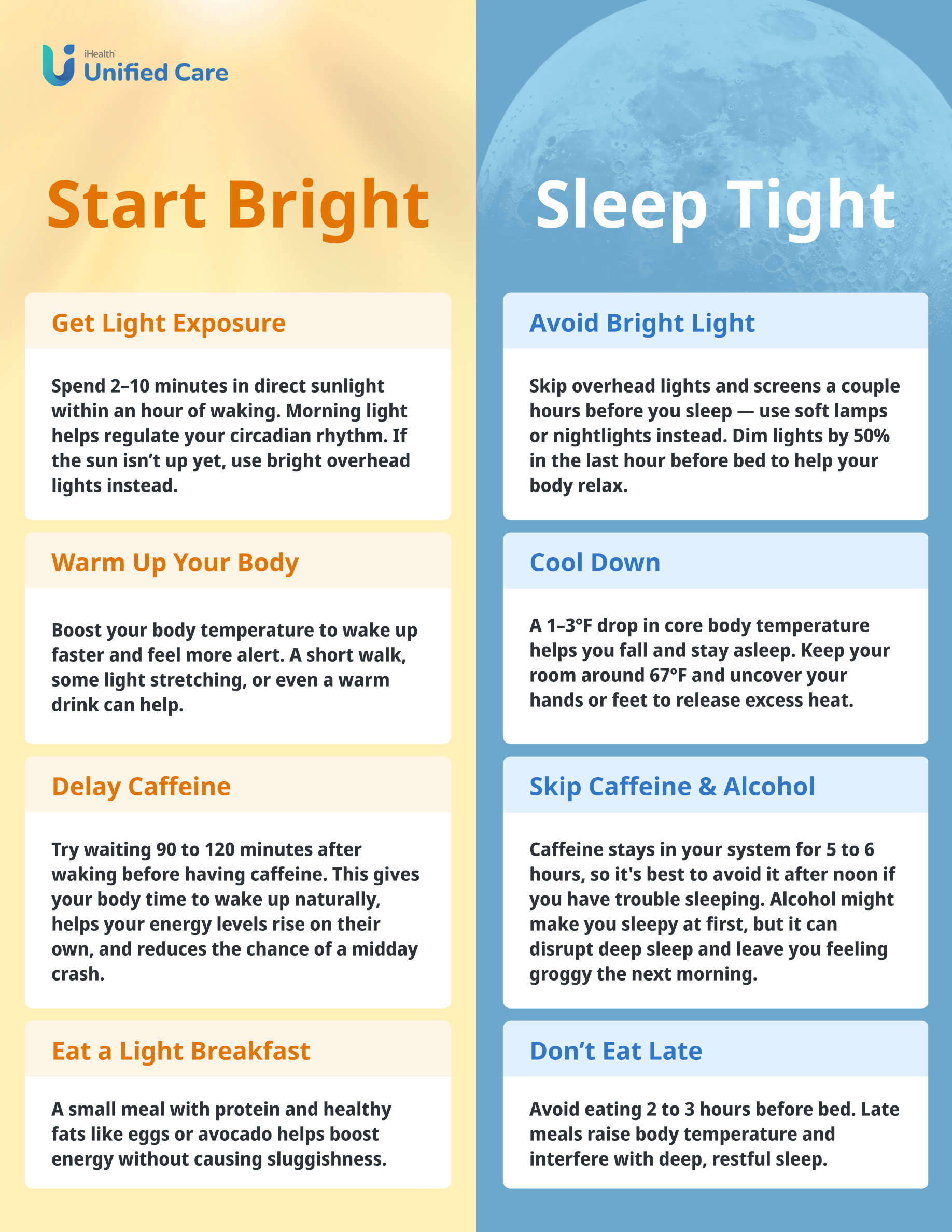Do you ever wake up feeling tired, even after 7 or 8 hours in bed? Poor sleep doesn’t just leave you groggy. It can mess with your metabolism, blood pressure, weight, and blood sugar.
The great news? You don’t need expensive gadgets or pills to fix your sleep. By making a few small changes to your daily routine, you can train your body to feel alert in the morning and ready for rest at night.
Here are 8 science-backed hacks to transform your sleep and your health:

1. Get Morning Sunlight
Step outside within an hour of waking, spend 2 to 10 minutes in direct sunlight. Morning light tells your brain it’s daytime, shutting off melatonin (your sleep hormone) and boosting natural energy. Even a few minutes of sunlight works wonders for focus and mood.
2. Move Your Body Early
Gentle stretching or a short walk raises body temperature and sparks dopamine and adrenaline, which help you shake off morning grogginess. Even five minutes counts!
3. Wait Before Coffee
Grabbing caffeine right away can backfire. Delay your first cup by 60-90 minutes to avoid the dreaded afternoon crash. Let your body wake up on its own before hitting the coffee pot. Caffeine hangs around in your body for hours. Drink it after mid-morning but stop by noon (or at least 10 hours before bed) to prevent tossing and turning at night.
4. Eat Smart for Energy
In the morning, keep breakfast light and protein-rich—think eggs, yogurt, or avocado. Heavy meals sap energy.
5. Dim the Lights at Night
Bright light between 10 p.m. and 4 a.m. kills melatonin production. Start dimming lights about an hour before bed. Swap overheads and screens for soft lamps, or even candles.
6. Cool Your Core
Your body naturally cools down 1–3°F when it’s time for sleep. You can help this process by:
- Taking a warm shower (you’ll cool afterward)
- Keeping your bedroom around 67°F
- Leaving your hands or feet uncovered to release heat
7. Skip the “Nightcap”
Alcohol might knock you out, but it destroys restorative sleep and blocks REM—the stage that helps memory and mood. You’ll wake up groggy, not refreshed.
8. Don't Eat Too Late
At night, finish eating 2–3 hours before bed. This allows your gut to rest and helps your body slip into deeper sleep. If you find yourself tempted to snack after dinner, chewing peppermint gum or brushing your teeth right after your meal can signal to your body that eating time is over.

Why These Hacks Work
These steps align your daily habits with your body’s circadian rhythm, your built-in 24-hour clock. When your brain and body are on the same schedule, you’ll:
- Fall asleep faster
- Wake up with more energy
- Crave less sugar and caffeine
- See steadier blood sugar and blood pressure
The Takeaway
Better sleep doesn’t require a massive life overhaul. These 9 small changes, like stepping into the early morning sun, finishing dinner earlier, or dimming the lights can have a huge impact.
Think of it this way: the way you sleep sets the stage for the way you live. Start with one tip tonight, and see how your mornings (and your health) improve.


